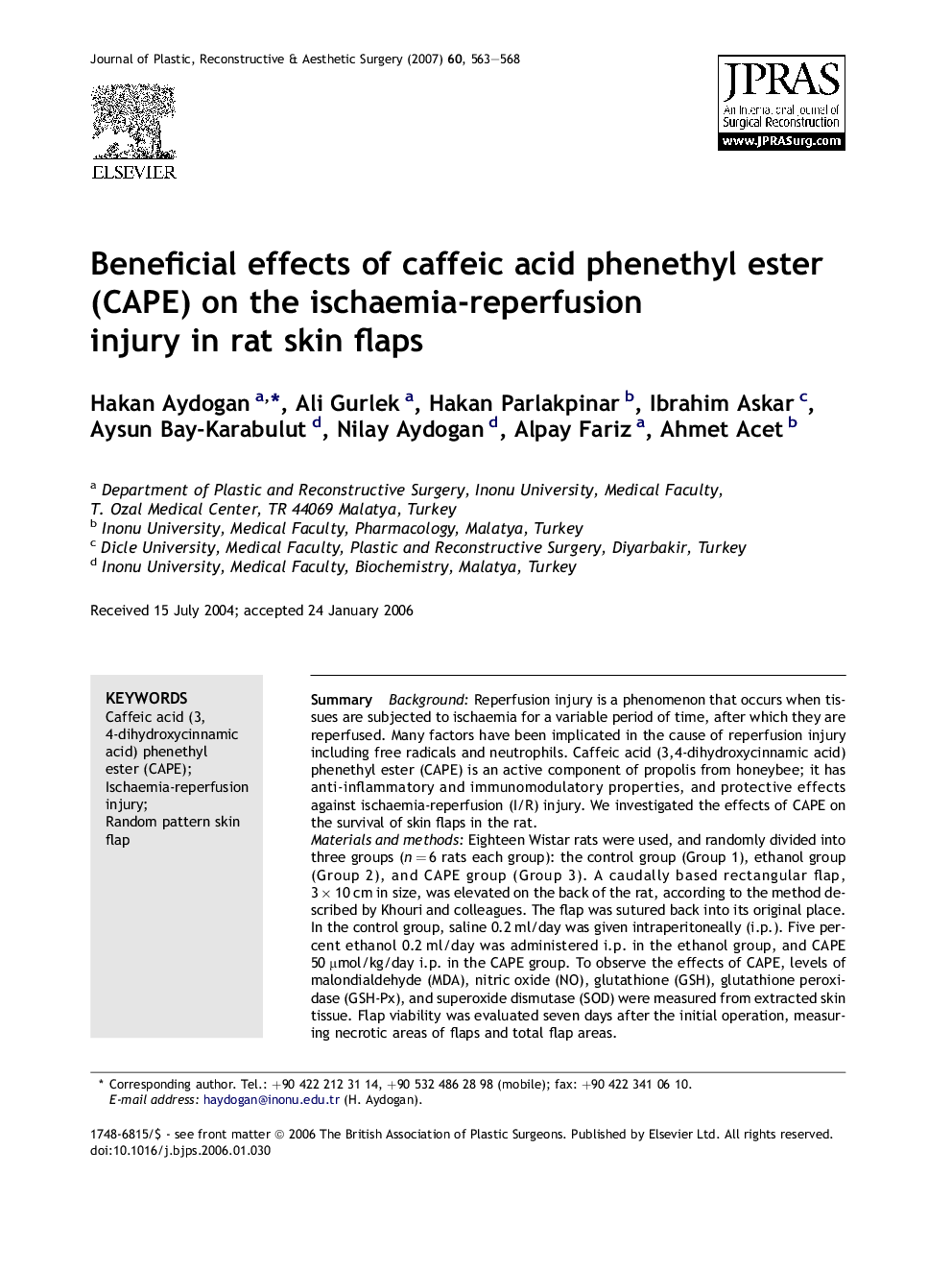| کد مقاله | کد نشریه | سال انتشار | مقاله انگلیسی | نسخه تمام متن |
|---|---|---|---|---|
| 4121814 | 1270405 | 2007 | 6 صفحه PDF | دانلود رایگان |

SummaryBackgroundReperfusion injury is a phenomenon that occurs when tissues are subjected to ischaemia for a variable period of time, after which they are reperfused. Many factors have been implicated in the cause of reperfusion injury including free radicals and neutrophils. Caffeic acid (3,4-dihydroxycinnamic acid) phenethyl ester (CAPE) is an active component of propolis from honeybee; it has anti-inflammatory and immunomodulatory properties, and protective effects against ischaemia-reperfusion (I/R) injury. We investigated the effects of CAPE on the survival of skin flaps in the rat.Materials and methodsEighteen Wistar rats were used, and randomly divided into three groups (n = 6 rats each group): the control group (Group 1), ethanol group (Group 2), and CAPE group (Group 3). A caudally based rectangular flap, 3 × 10 cm in size, was elevated on the back of the rat, according to the method described by Khouri and colleagues. The flap was sutured back into its original place. In the control group, saline 0.2 ml/day was given intraperitoneally (i.p.). Five percent ethanol 0.2 ml/day was administered i.p. in the ethanol group, and CAPE 50 μmol/kg/day i.p. in the CAPE group. To observe the effects of CAPE, levels of malondialdehyde (MDA), nitric oxide (NO), glutathione (GSH), glutathione peroxidase (GSH-Px), and superoxide dismutase (SOD) were measured from extracted skin tissue. Flap viability was evaluated seven days after the initial operation, measuring necrotic areas of flaps and total flap areas.ResultsMDA and NO levels were significantly decreased in CAPE group; and however, GSH, GSH-Px, and SOD enzyme activities were significantly increased in CAPE group.We believed that the CAPE had beneficial effects to improve the survival of skin flaps since it has antioxidative and anti-inflammatory properties, and protective effects against I/R injury.
Journal: Journal of Plastic, Reconstructive & Aesthetic Surgery - Volume 60, Issue 5, May 2007, Pages 563–568